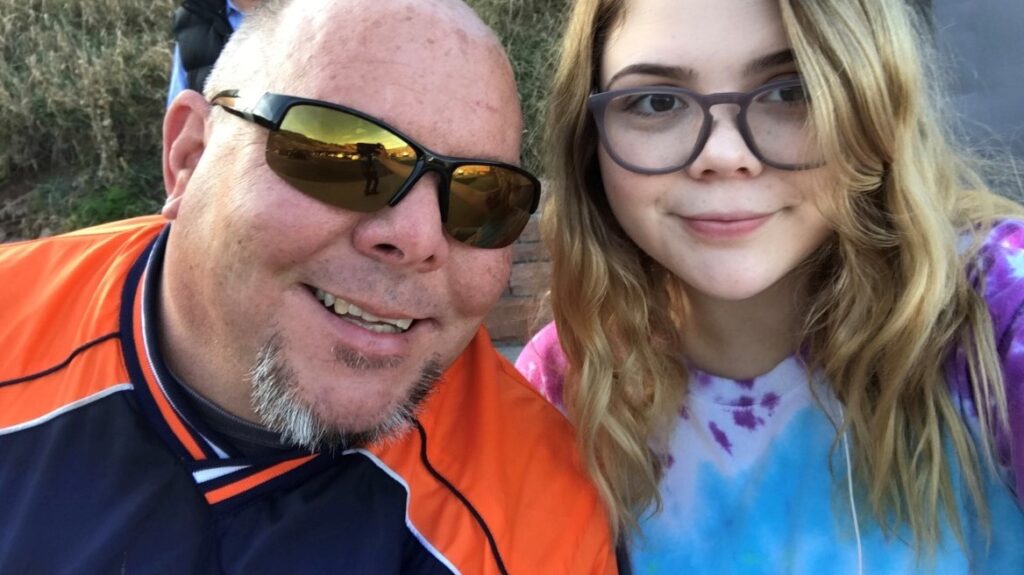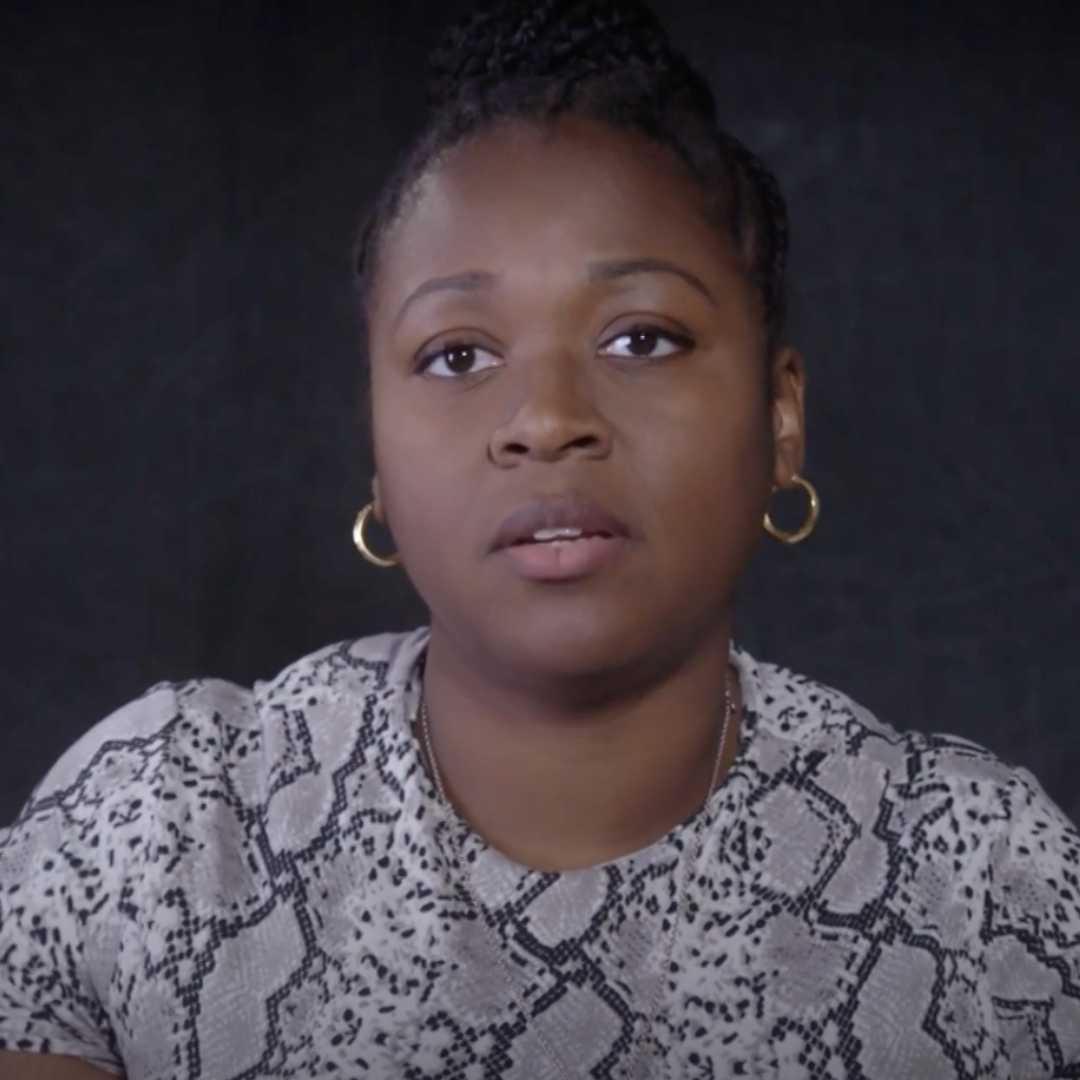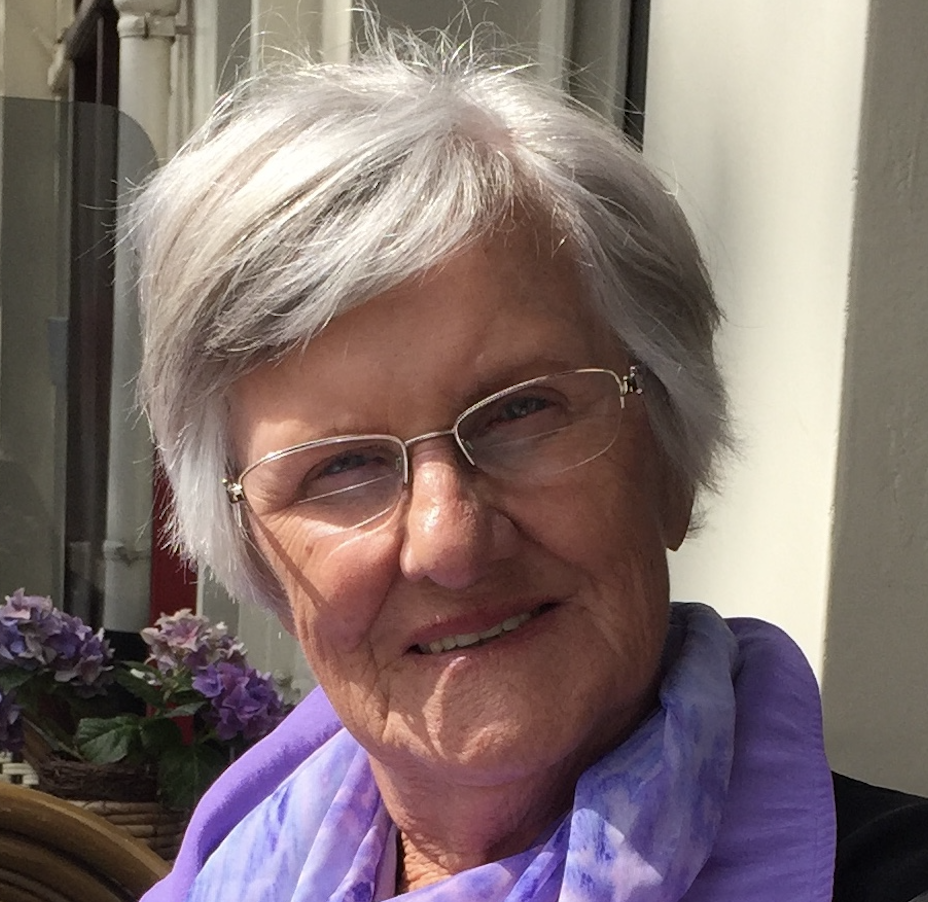Sydney Derochie is a death with dignity advocate in Iowa.
Nobody made bonfires like my dad.
Going camping with him was always an adventure. I remember going camping with him and the huge bonfires he’d make at night. We would haul our house recliners outside and have a blast.
So many of my happy memories from childhood involve my dad making everything fun. He loved being around people and had many friends, and he could always make me laugh. He was passionate about so many different things: music, golfing, football, and boating on the Missouri River. I will always think of him as a “river rat”: he would live on the river if he could.

The fun ended in February 2018. He was diagnosed with gioblastoma, an aggressive form of brain cancer. His prognosis was 12 to 15 months. It was a huge shock to all of us.
He began chemotherapy and started making his “bucket list” of places he wanted to go before he died. There were family members in Colorado, Florida, and Las Vegas he wanted to see, and he made the trek to see them. The traveling was difficult for him because of the effects of the chemo on his body, but he was still grateful to have the chance to see the Rockies, the Atlantic Ocean, and Vegas with his own eyes.
When he returned from his trip, he spent a lot of time in the hospital getting treatment. His friends would drop by and do their best to make him feel better by telling jokes and keeping the mood light. My dad enjoyed those visits, but as time went on and he got weaker he didn’t want people to see him in a frail state.
My mother and I had to split care for him. She is a full-time teacher, working an hour and a half away from where we live, and I was working part-time afternoons and nights. This forced us into a very tight schedule. I was with him from 6am to 5pm and she was with him for the remainder of the evening and night.
As his illness progressed, he had to retire and eventually was no longer able to operate a vehicle anymore. Sooner than we realized, he was in in-home hospice care.
Being on hospice made my dad feel useless, depressed,and hopeless. But at a certain point, things got so bad that no amount of care could help him.
He was confined to a hospital bed at home, choking on the fluid in his lungs, in so much pain because his throat was so swollen. I had to sit beside him for hours, watching and listening to make sure he was still breathing.
During one especially difficult time, he wasn’t able to speak for days on end. When he could talk to us, he told us, “I want to be gone.” I remember him laying there, crying, telling my mom he didn’t want to do it anymore.
The last thing I ever heard him say to me came after hours and days of him not being able to speak. He said, “hi ,sweetheart.” He died soon after.
I got 18 great years with my dad. He was the most motivated, funny, and loving person I’ve ever known, and I wish he didn’t have to suffer for so long. That not only takes a toll on the person dying but hugely on the people surrounding them.
As my dad was dying, I found myself thinking about the documentary “How to Die in Oregon,” which I’d seen a few years earlier. It really stuck with me. To choose not to suffer at the end of life is a beautiful way to go. To have the option of death with dignity seemed so humane.
I made my mom watch it with me. Initially, she was against aid in dying. But after watching my dad suffer in his final months, she saw the positive impact it could have had on him, and she changed her mind.
I shared Death with Dignity National Center’s “take a stand” petition on Facebook. My mom and I worked to bring other people on board as supporters. I knew not everyone would agree with our opinion, but I spoke my truth anyway. My dad’s the kind of person who doesn’t care what other people think, and I try to follow his example.
When I learned that legislators in my state had introduced an an aid-in-dying bill, I knew I wanted to work to help it pass. This bill is so important, and I am committed to helping make sure that one day, Iowans have the end-of-life options that people in Oregon and other states with death with dignity laws have.
To me, death with dignity is a way out of suffering that is unnecessary. It’s a way to say to your illness, “You don’t get to dictate how I die or when I die.” It’s a way to take control at the end of life.
The End-of-Life Options Act needs to be passed in Iowa, and every state should have a death with dignity law. I want action now.

